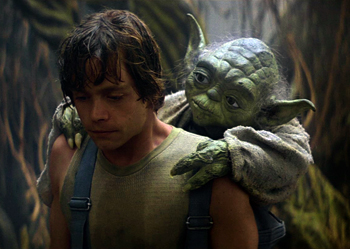The Grand Trine in water is winding down, yet Jupiter will be in Cancer for another year, Saturn will remain in Scorpio for two more years, and Neptune has over a decade left in Pisces. Water remains abundant for quite some time.
As noted in Part 1 (which is good to read before reading Part 2), water brings us into a more timeless way of being, where memory and imagination are not radically different from one another. Memory, reflection and imagination add presence to the present.
What follows are a number of various musings on the different pieces of the Grand Trine in water. For starters, check out ATB’s beautiful and evocative song “Moving Backwards.”
MEANINGFUL MEMENTOS (Jupiter in Cancer)
Jupiter, the great sky god, is the grand Adventurer of the planets, the Storyteller and Visionary. Stories bring meaning to life. Cancer connects us with feelings of belonging, of home, of family and what is familiar. Cancer holds on to very personal memories by saving letters, photographs, voicemail messages, mementos, souvenirs. With Jupiter in Cancer, meaning and memory come together. They tell a story. Memories mean something. Our personal histories resonate with meaning.
In “The Muppet Movie” Kermit the frog sets off on a cross-country adventure, heading from his Florida swamp all the way to Hollywood. Along the way he is joined by Fozzie Bear, Rowlf the dog, Miss Piggy, Gonzo and others. They become family. At one point, Gonzo is lifted into the sky while holding a bunch of helium balloons. Later in the movie, when the group is stranded and sitting around a campfire feeling lost—a moment with resonance to this Grand Trine, not to mention a fine example of how memory and musing work together—Gonzo sings the poignantly nostalgic yet forward-looking song “I’m Going To Go Back There Someday,” reflecting on what it was like to fly and his longing to return to the sky.
The United States of America has Jupiter in Cancer. This can be seen in the adventurous spirit of the early settlers crossing the country to claim land to call home (though it doesn’t account at all for the horrific actions toward the native people already here first). We can see Jupiter in Cancer too in the gathering of different cultures together, all bringing with them different pasts and different stories and different beliefs, attempting to build a united shelter for all (though we can see more and more in 2013 how wildly complicated such a vision actually is at the ground level).
There is also something of Jupiter in Cancer in universities, with their annual Homecoming events, and in how you remember your “alma mater” (“nourishing mother”). Jupiter’s higher knowledge nourishes the soul.
And perhaps it was Orville Wright’s Jupiter in Cancer that helped make the first airplane flight a family affair with his brother Wilbur.
MEMENTO MORI (Saturn in Scorpio)
Saturn in Scorpio is arguably the most difficult and trying part of the Grand Trine, because Scorpio delves into the deep end. Saturn in Scorpio lingers in the swamps, marshes, bogs and billibongs of the psyche and of the world. These are strange yet fascinating places we’d rather not hang around for too long, if we can avoid it. Mosquitos breed easily in the musty air, and strange creatures can hide out in the shadows. Where to step? Is this even safe? What lurks in the stagnant waters? Perhaps there really is a serpentine monster in Loch Ness! Saturn in Scorpio can arrest all forward motion, in the interests of going deeper into difficult and challenging emotional terrain, the monsters in our own lochs. Yet, still waters are nature’s mirror. Reflection is natural, and reflections in the Saturn in Scorpio mirror can be quite profound. They draw you down into your core.
Consider Luke Skywalker's experiences on the swamp planet Dagobah, and the rigor and intensity of his training to become a Jedi under the guidance of Yoda, and you get an idea of the challenge as well as the potential.
Closer to home, in a galaxy not so far away... In the aftermath of the recent verdict in the murder of Trayvon Martin trial, this powerful and bold piece depicts one way Saturn in Scorpio works, in its potent and brutal honesty in the face of injustice and death:
To White Folks: The Collective Lament of Trayvon Martin is Not Your Anti-Racist Political Platform
Posted on the day the aspects of the Grand Trine in water were tightest, the author writes, “Here I sit. I don’t have much to say. I only have ways of feeling.” And, “I am at the bottom of the sea, with no surface in sight.”
Battered and war-torn ships sink to the bottom of the sea, but so do their treasures, which lay waiting indefinitely to be discovered or remembered if we are willing to explore these murky depths. You can’t find the sunken treasures if you resist going to the bottom and spending some time there.
There’s a lot more to Saturn in Scorpio, which you can listen to in my recording “Saturn in Scorpio – In Search of Buried Treasure.”
And, before moving on, there is this news item, today: Package sent to Globe brings end to long mystery (wow!)
EXPLORING THE BLUE (Neptune in Pisces)
“Haunted by your grace / The beauty of falling… falling… / It echoes through my days / I still hear you calling / You’re calling me… / The calling is taking over, it’s taking over…”—Dash Berlin & Emma Hewitt
["Ocean, Stars, Sky and You" by mudmelly]
Neptune in Pisces calls with oceans of possibility. Before I launch into the longer musings for Neptune in Pisces, if you want an immersion in Neptune in Pisces consider checking out Neil Gaiman’s brilliant new book “The Ocean at the End of the Lane.”
Now, in chart readings lately I have been exploring with people the nature of Neptune and enchantment. This is tricky territory, considering Neptune’s reputation for illusion, confusion, escapism and addiction. How do you fit enchantment and addiction together? What’s real and what’s an illusion? While I’m not all that qualified to talk about what’s “real” with any authority whatsoever, I want to offer a perspective to consider.
If you keep in mind the difference between spirit and soul, the spirit is what seeks clarity, a clear vision. The spirit is interested in Truth with a capital T. The spirit wants the Truth, the whole truth, and nothing but the Truth. Honesty is its best policy. The spirit is quick to call “illusion” anything that does not fit its understanding of the literal, actual Truth.
The soul, however, works Truth through story, art and myth. For the soul, truth is a heart-felt song. For the soul, truth is in imagination. What is considered a fabrication to the spirit becomes the fabric of life for the soul. Imagination reigns supreme. We see this resoundingly in the movie Big Fish: “This is a Southern story, full of lies and fabrications, but truer for their inclusion.” Without enchantment, we're missing a huge part of the story! From this perspective, perhaps there is more truth about Van Gogh in his “Starry Night” than in the huge biographies written about the man and his life (as interesting as those are). Perhaps we can find out more about Charles Dickens by reading “A Tale of Two Cities” or “Bleak House” than we can by investigating only the facts of his life. When we tell stories, or tell our lives as stories, the poetic truth inside these stories reverberates deeply with the soul. To poeticize means “to make.” Poets thrive on imagination, and from the perspective of soul, imagination is not something made up; rather, imagination is what makes up the entire world around us.
This is where enchantment comes in. See, Neptune gets associated mainly with escapism, addictions, confusion and illusion when viewed through the perspective of a disenchanted universe, which is the worldview western culture locked in during the Enlightenment and the Age of Reason in the 18th century and has never really shaken. When the universe is viewed as a machine, turning its planetary gears and galaxies around and around and around with mechanical precision—a scientific universe in which reason and order prevail—the longings of Neptune take on a heightened urgency. This is where addiction comes in. The need for escape becomes paramount—and rightly so! Who would want to live in that kind of universe? Longing for something better becomes a necessity, because most of the astounding wonder and majesty and mystery of the world and the universe is reduced to what can be rationally understood and reasoned with. Get me out! Addiction becomes a way out—and a huge problem—mostly in lieu of any other options (for example, the option that we live in an enchanted universe and what that means).
Consider: from the perspective of most indigenous cultures and wisdom traditions that dominate world and human history, the world in one way or another is enchanted from the get-go. The soul comes first, not last. Souls, not babies, are born into the world. These cultures pass on unique stories, legends and myths from generation to generation, carrying the combined sense of memory and imagination with them.
Recently, Merida in “Brave” displays this sensibility when she follows a trail of will-o’-the-wisps, the spirits of her ancestors. Somehow, they know the way better than Merida. In this regard, mystery is not an inconvenience, full of obnoxious detours and annoying setbacks in what should otherwise be a more secure, straight-forward, practical, productive and predictable experience of life. No. Mystery is not something to be understood narrowly through a microscope, but rather imagined archetypally through a horoscope. From the perspective of so many indigenous cultures, in one way or another enchantment is the way of the world. It’s what we’re made of. Neptune is the stuff we’re made of. The enchanted, wondrous, magical world of the soul is present in everything, everywhere. Said best by the ghost-spirit of Merlin’s father to his son, in the television series Merlin, “Magic is the fabric of this world, and you were born of that magic. You are magic itself.”
WET WET WET
The Wikipedia entry for “decompression sickness” (also known as “the bends”—think: reflection and water) includes a section called “Leaving a high-pressure environment.” In the high-pressure environment of today's world, experiencing this Grand Trine in water might feel a bit like the bends: Woah! Too much! Give me something to hold onto!
Immersion in water is a very different experience than standing on top of the grounded and practical productivity many have grown accustomed to or try to keep up with. That way of life no longer works. It’s not enough, not by a long shot. If it’s hard to keep up, slow down. With this Grand Trine in water, and three major planet in water for quite a while to come, we would do well to loosen the more rigid structures we cling to for security and understanding, and spend time reflecting, telling stories, reading myth, wondering and imagining.
Water is the source of all life, and not just literal life. The imaginative life that emerges from the element of water is more vital than ever. With this Grand Trine in water, Jupiter in Cancer nourishes the imagination, Saturn in Scorpio deepens and strengthens our most essential core images, and Neptune in Pisces places in our hands the fabric from which we can weave a more cohesive and inclusive world of soul. Time to get wet!



















